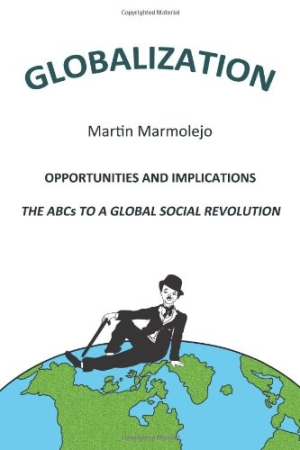Globalization
Opportunities and Implications
Martin Marmolejo’s study of globalization is a big book in terms of scope and size. The founder of a global investment management firm, Marmolejo focuses on the concept of globalization from a broad economic perspective in an encyclopedic work that is comprehensive and well organized.
The author begins with an overview of the global economy that offers readers contextual and historical background, providing a quick sketch of the agricultural, industrial, and information/services eras. He then provides numerous examples of successful global companies. While most authors would rely on recognizable names of businesses from such countries as the United States, China, and Europe, Marmolejo takes a much more intriguing approach, citing businesses from Spain, Mexico, Brazil, Peru, Argentina, and Chile. The author points out that, despite their global successes, the majority of these companies are not listed on any stock exchange.
The second section of Globalization, titled “Around the World in Ten Chapters,” should prove to be exceptionally useful to any corporate manager who needs insight into the economic viability of virtually every region of the world. Here, Marmolejo manages to distill a great deal of information into a two-part standard format for every country surveyed. First, he summarizes basic statistics, such as population, gross domestic product, and exports. Then he provides a concise, objective overview of each country’s “society and economy.” The result is a definitive collection of country profiles that in and of themselves have considerable value.
Subsequent sections of the book address governance from the perspective of both nations and corporations; interesting examples of social entrepreneurship from different continents; economic cycles; and the author’s thoughts on a “new world order” that may emerge in a global economy. Marmolejo makes some closing observations in an epilogue, suggesting that, while globalization is inevitable, it is up to humans to “take the best advantage of it” and “learn to make constructive use of our differences.” He makes an impassioned plea to world leaders to recognize that globalization could be “an effective antidote to avoid military confrontations in the future.” He believes that, “the only way future wars can be prevented is by thoroughly and seriously applying the law of reciprocity, of giving and receiving, with increased transparency, greater fairness, more balance, greater exchange (of all types), and effective accountability.”
The author includes a bibliography and exhaustive appendices, including a wealth of current statistical data. Supplemental information, such as “world indices of economic and social well-being by country,” a breakdown by country of exports plus gross domestic product by volume and per capita, are welcome additions to the text.
Martin Marmolejo has done a masterful job of collecting, organizing, and distilling information in a volume that is easy to navigate. The breadth and depth of Globalization suggests this book could be the single reference required for the reader who needs to know more about any aspect of the global economy.
Reviewed by
Barry Silverstein
Disclosure: This article is not an endorsement, but a review. The publisher of this book provided free copies of the book and paid a small fee to have their book reviewed by a professional reviewer. Foreword Reviews and Clarion Reviews make no guarantee that the publisher will receive a positive review. Foreword Magazine, Inc. is disclosing this in accordance with the Federal Trade Commission’s 16 CFR, Part 255.

